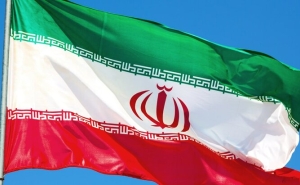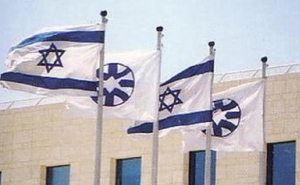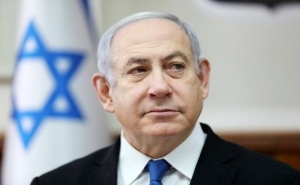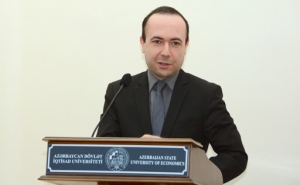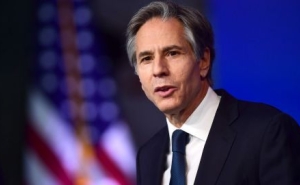Representatives of Arab Israelis Most Likely Will Preserve Their Seats in the Knesset
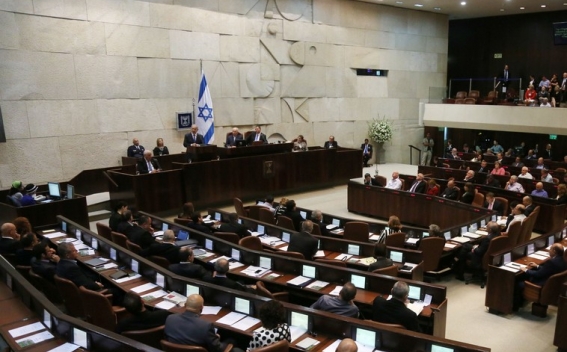
On March 17, 2015 early parliamentary elections will be held in Israel. To understand the importance of these elections for Israel and particularly for the Arab Israelis, the political structure of the country should be presented.
Israel is a parliamentary democracy and has legislative, executive and judicial branches. The head of the state is the President. The Speaker, Knesset, Committees, Mayors and Council Heads, Local Councils constitute the legislative branch. The Prime Minister, Government, Ministries, State Comptroller and Ombudsman constitute the executive branch. The Court System and the Attorney General constitute the Judicial System. In this political system the executive branch, as the Israel Ministry of Foreign Affairs writes, is subject to the confidence of the legislative branch.
The President of Israel, who is the head of the state, symbolizes the unity of the nation. The candidates of the president are being nominated taking into consideration their contribution to the state and are being elected by a simple majority of the Knesset. The President is elected for a single term of seven years. The duties of the President are mainly ceremonial and formal, and are defined by law.
The Knesset, which is the legislative body of the country, consists of 120 members, who are elected by general elections. During the first session of the Knesset the members express their allegiance and then the speaker and the deputy speakers are being elected. The Knesset serves for four years but can be dissolved by the Prime Minister or by a constructive vote of no confidence, which was the case on December 8, 2014 when with the unanimous vote the Knesset was dissolved and early parliamentary elections were appointed.
The government (cabinet of ministers) that is responsible for the internal and external affairs of the country is the executive authority of the state. The prime minister appoints members of the Cabinet based on the distribution of votes of the political parties during the elections. The ministers are responsible to the prime minister for carrying out their duties and accountable to the Knesset for their actions. The government also serves for four years. Until now all governments of Israel have been formed with several parties making coalition, as no party has received enough seats to form a government by itself.
The decisions in the Knesset are passed by the majority vote. In this regard it should be reminded that in the 19th Knesset there were 12 representatives of the Arab Israelis. With a bill passed by the Knesset the threshold for securing a seat in the Knesset was raised from 2% to 3.25%. This caused much debate as this step was perceived as an obstacle created by the majority of the Knesset to ensure less Arab members in the Knesset. This was the reason why the Hadash, Balad, Taal and the Islamic Movement parties joined the United Arab List, to form the Joint List and together run the elections. According to the latest poll, the Joint List in the upcoming elections may win 12-13 seats, which means they will preserve their previous seats.
As for the judiciary, its independence is guaranteed by law and the judges are appointed by the president. Appointments are permanent, but there is a retirement age, which is 70.
Israel does not have constitution, but it has Basic Laws which are adopted by the Knesset the same way as other legislation – by majority vote.
Other materials on this subject
- Israel: Gantz and Netanyahu Fail to form Government before Deadline If the parliament fails to select such a candidate, or if the chosen person could not form a government within 14 days, Israelis will be asked to hit the polls yet again.
- Israel Election: Netanyahu Claims 'Biggest Win' Amid Vote Count Monday's election was Israel's third in less than a year, after neither leader was able to form a government.
- Israel to Hold March 2 Election, Its Third in Less Than a Year In that ballot, and in the one prior in April, Netanyahu’s conservative Likud party deadlocked with ex-general Benny Gantz’s centrist Blue and White. Neither managed to muster enough support in the...
- Benjamin Netanyahu Chosen to Form New Israel Government If he fails, centrist Gantz of the Blue and White party will likely be given a chance.
- Israel Election Results: Netanyahu’s Bloc Slightly Ahead but Fails to Secure Majority Avigdor Lieberman, whose Yisrael Beiteinu party is projected nine seats, is expected to be the election's kingmaker.
-
 17:08
17:08The regular session of the Anti-corruption Policy Council takes place in Jermuk
-
 15:05
15:05The Prime Minister sends congratulatory messages to the supreme leader of Iran and the President of Iran
-
 11:11
11:11Armenia sends earthquake aid to Turkey
-
 10:43
10:43Commemoration of the Pontiff St. Sahak Partev
-
 09:16
09:16Some roads are closed and difficult to pass in Armenia
-
 19:55
19:55Phone conversation of the Foreign Minister of Armenia with the U.S. Assistant Secretary of State for European and Eurasian Affairs
-
 18:30
18:30Prime Minister Pashinyan and President Khachaturyan meet
-
 18:20
18:20Ararat Mirzoyan with Co-Chairman of the OSCE Minsk Group of France Brice Roquefeuil
-
 17:01
17:01Humans could land on Mars within 10 years, Musk predicts
-
 16:45
16:45France, US urge 'immediate' end to Nagorno Karabakh blockade
-
 16:01
16:01Blockaded Nagorno Karabakh launches fundraiser to support quake-hit Syria
-
 15:59
15:59Earthquake death toll in Turkey rises to 18,342
-
 15:43
15:43Ararat Mirzoyan Held a Telephone Conversation with Sergey Lavrov
-
 15:06
15:06French president rules out fighter jet supplies to Ukraine in near future
-
 14:47
14:475 Day Weather Forecast in Armenia
-
 14:44
14:44President Vahagn Khachaturyan wrote a note in the book of condolences opened in the Embassy of Syria in Armenia
-
 14:20
14:20Azerbaijan’s provocations impede establishment of peace and stability – Armenian FM tells Russian Co-Chair of OSCE MG
-
 12:57
12:57France representation to OSCE: Paris calls on Azerbaijan to restore freedom of movement through Lachin corridor
-
 11:40
11:40Command of Kosovo forces highly appreciated preparation of Armenian peacekeepers
-
 10:16
10:16The United States withdrew from sanctions against Syria for six months the provision of assistance after the earthquake
day
week
month
Humidity: 37%
Wind: 0.51 km/h


